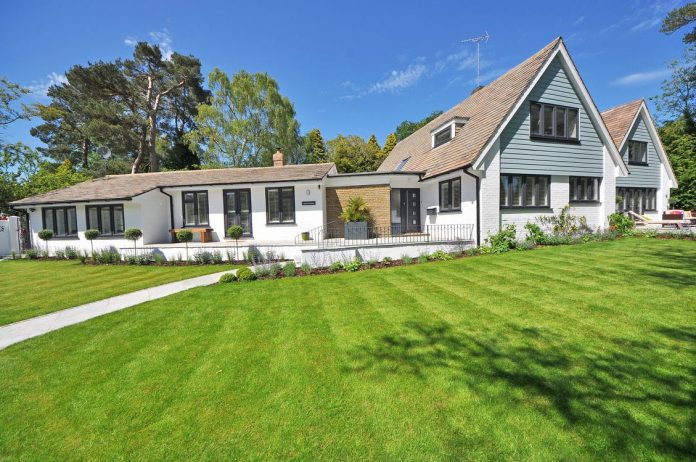
Owning a home can be a wonderful investment. It can also be a money pit, but that doesn’t mean you should just pay rent forever and never consider buying.
Preparing for the most common expenses of homeownership can go a long way toward helping ease the transition from renting to owning without straining (or breaking) your budget. Here are 10 costs homeowners never seem to expect — but should.
#1 Added Monthly Payments
Homeowner’s insurance and property taxes are especially important to consider when shopping for a home. Online mortgage calculators can provide estimates, but many of them fail to include these items in the equation. Their quotes can fall far short of the actual monthly payment, which is important when determining how much you can afford to pay each month. You’ll be responsible for paying these additional fees even if they’re not included in your monthly mortgage.
#2 Pest Control
Pest control may be one of the expenses you can easily forget until you see a stray cockroach run across your living room floor or spy a trail of ants heading into your kitchen. Homeowners should plan for regular pest control services as a part of the expense of owning a home. Also, keep in mind that most home warranties, and even homeowner’s insurance, won’t likely cover termite damage — and treatment and repairs can get expensive. Planning for this problem could save you a headache down the road.
#3 Lawn Care and Landscaping
Another common expense of homeownership is lawncare and landscaping services. Do you want to purchase a lawnmower and take the time to do it yourself, or do you prefer to pay an individual or company for the upkeep of your lawn? That’s just one of the decisions you’ll need to make when you own a home. You’ll also need to keep an eye on trees that may pose a risk to the home. Tree removal expenses can add up. Gardeners will also want to consider the expense of sprinkler systems to keep lawn and garden beds healthy.
#4 Roof Repair or Replacement
At some point over the life of a home, you’re going to need a new roof, which can be an enormous expense. Your home insurance may cover damage to the roof requiring repairs, but you’ll likely need to pay a deductible. Either way, your best bet is to make sure you save for a rainy day.
#5 Foundation Issues
Tell-tale cracks in a home could indicate problems with the foundation. Issues with the foundation usually become evident during a routine home inspection, but if inspectors miss it or you’ve opted out of the inspection, you may run up quite the bills getting the foundation repaired. This is a common problem, but it can feel like an uncommon expense. Putting aside money in preparation can help better prepare for this sort of expense.
#6 Job Loss or Illness
Losing a job or being treated for a major illness is a common life issue that could throw your entire budget off-kilter. If you haven’t saved for these emergencies, you could end up at risk of losing your home. Many financial experts say you should have three to six months of expenses saved for just such a scenario, but many people who live paycheck to paycheck simply can’t afford to prepare this way. Save what you can because you never know when your income could take a direct hit, putting at risk the home you worked so hard to purchase.
#7 Heating and Air Replacement or Repairs
Just like with the roof, you’ll likely find yourself replacing or repairing the heating or cooling system during the life of a home. A new water heater or an air conditioning system could come with a big price tag, and repairs aren’t cheap either. Major appliances in the home can last for a decade or more, but eventually, they’ll need to be repaired or replaced. Saving up for these expenses over time could be a relief when they finally reach the end of their lifespan.
#8 Water Damage
Leaks around windows, doors, or along the roof can cause expensive damage. Allowing these problems to fester could leave you with mold — and all the expenses that come with it. Water damage can require structural repairs, mold treatment, and more. If you notice water is getting in your house, it’s best to be proactive about making the fixes to keep it out.
#9 HOA Fees
Does your neighborhood come with a homeowners’ association (HOA)? If so, you may have annual fees you’ll be responsible for paying. Factor these fees into your budget. You won’t be able to opt-out if you choose to live in a neighborhood with an HOA.
For many homeowners, HOAs represent the nosy neighbors telling you how to keep up your yard and home, but there are also many advantages of living in an area that has one. You may find that your home values stay higher on average, and you could also have the HOA do the dirty work of handling any obnoxious neighbors, so you don’t have to worry about issues. Homeowners’ associations can also come with neighborhood amenities like swimming pools you can access as a paying member.
#10 Plumbing
Don’t forget to add plumbing expenses to the list of possible homeownership expenses. You may be able to handle a minor clog in a drain, but more complicated repairs will likely need to go to a licensed plumber. Skilled workers can come with a hefty price tag, so make sure emergency savings are ready for this common household need.
Owning a home can be daunting, but it can also be rewarding. Going into the process with plans for how to handle the pitfalls can help make your dream of homeownership a reality. Instead of shoveling all of your money into an endless pit of repairs and replacements, you’ll be content knowing that you’ve prepared yourself for the many common expenses that come with your home.






